
-
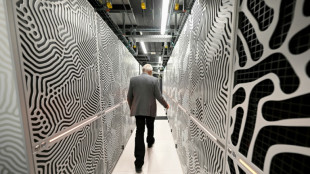 EU wants key sectors to use made-in-Europe AI
EU wants key sectors to use made-in-Europe AI
-
De Minaur, Rinderknech through to Shanghai quarter-finals

-
 Gisele Pelicot says 'never' gave consent to accused rapist
Gisele Pelicot says 'never' gave consent to accused rapist
-
Thousands stranded as record floods submerge Vietnam streets
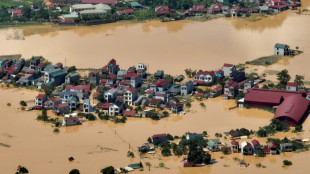
-
 Sabalenka battles to keep Wuhan record alive, Pegula survives marathon
Sabalenka battles to keep Wuhan record alive, Pegula survives marathon
-
Trio wins chemistry Nobel for new form of molecular architecture
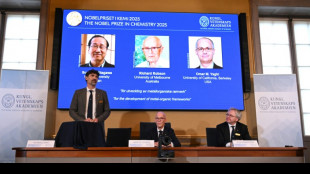
-
 Tarnished image and cheating claims in Malaysia football scandal
Tarnished image and cheating claims in Malaysia football scandal
-
Family affair as Rinderknech joins Vacherot in Shanghai quarters

-
 New documentary shows life in Gaza for AFP journalists
New documentary shows life in Gaza for AFP journalists
-
Tennis stars suffer, wilt and quit in 'brutal' China heat
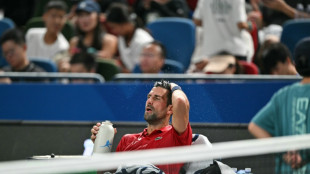
-
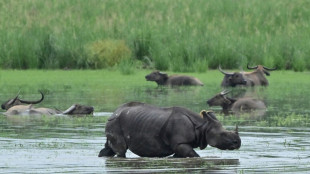 Wildlife flee as floods swamp Indian parks
Wildlife flee as floods swamp Indian parks
-
Record flooding hits Vietnam city, eight killed in north
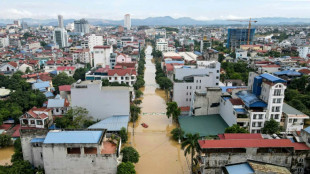
-
 Battling cancer made Vendee Globe win 'more complicated', says skipper Dalin
Battling cancer made Vendee Globe win 'more complicated', says skipper Dalin
-
England, Portugal, Norway closing in on 2026 World Cup

-
 Child protection vs privacy: decision time for EU
Child protection vs privacy: decision time for EU
-
Bear injures two in Japan supermarket, man killed in separate attack

-
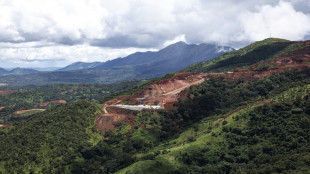 In Simandou mountains, Guinea prepares to cash in on iron ore
In Simandou mountains, Guinea prepares to cash in on iron ore
-
Morikawa says not to blame for 'rude' Ryder Cup fans

-
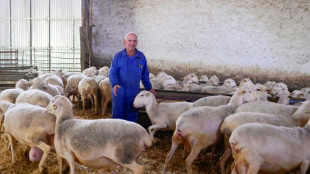 Far right harvests votes as climate rules roil rural Spain
Far right harvests votes as climate rules roil rural Spain
-
'Return to elegance': highlights from Paris Fashion Week

-
 Britain's storied Conservative party faces uncertain future
Britain's storied Conservative party faces uncertain future
-
New Zealand's seas warming faster than global average: report
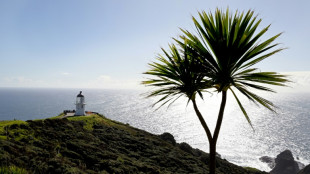
-
 Snakebite surge as Bangladesh hit by record rains
Snakebite surge as Bangladesh hit by record rains
-
Yankees deny Blue Jays playoff sweep as Mariners beat Tigers

-
 Australia police foil 'kill team' gang hit near daycare centre
Australia police foil 'kill team' gang hit near daycare centre
-
US, Qatar, Turkey to join third day of Gaza peace talks in Egypt
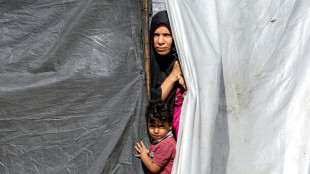
-
 Gold tops $4,000 for first time as traders pile into safe haven
Gold tops $4,000 for first time as traders pile into safe haven
-
Indian garment exporters reel under US tariffs
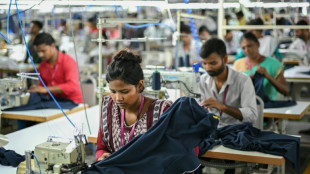
-
 NBA back in China after six-year absence sparked by democracy tweet
NBA back in China after six-year absence sparked by democracy tweet
-
Energy storage and new materials eyed for chemistry Nobel
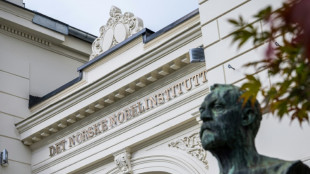
-
 Trump unlikely to win Nobel Peace Prize, but who will?
Trump unlikely to win Nobel Peace Prize, but who will?
-
Qatar, Turkey to join third day of Gaza peace talks in Egypt
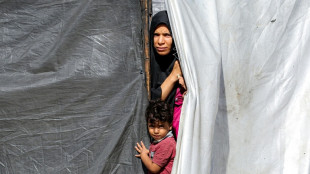
-
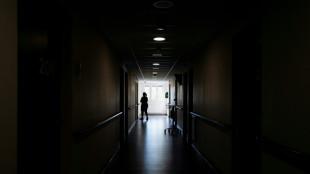 Study finds women have higher genetic risk of depression
Study finds women have higher genetic risk of depression
-
Dolly Parton's sister calls for fan prayers over health issues

-
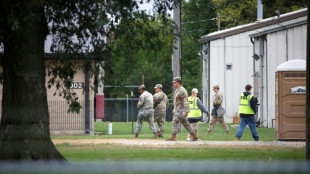 On Trump's orders, 200 troops from Texas arrive in Illinois
On Trump's orders, 200 troops from Texas arrive in Illinois
-
Two bodies found, two missing after Madrid building collapse

-
 Panthers raise banner as NHL three-peat bid opens with win
Panthers raise banner as NHL three-peat bid opens with win
-
Nobel physics laureate says Trump cuts will 'cripple' US research
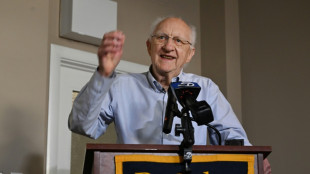
-
 UFC star McGregor suspended 18 months over missed drug tests
UFC star McGregor suspended 18 months over missed drug tests
-
Trump talks up Canada trade deal chances with 'world-class' Carney
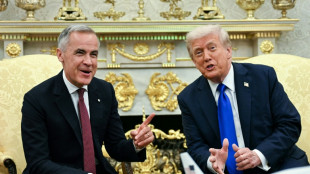
-
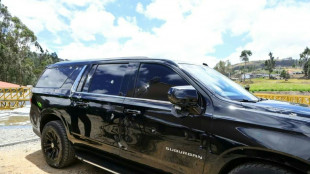 Ecuador president unharmed after apparent gun attack on motorcade
Ecuador president unharmed after apparent gun attack on motorcade
-
Lyon exact revenge on Arsenal, Barca thrash Bayern in women's Champions League

-
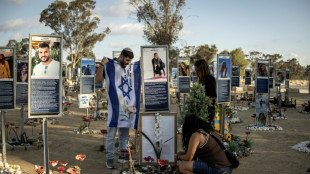 Trump says 'real chance' to end Gaza war as Israel marks attacks anniversary
Trump says 'real chance' to end Gaza war as Israel marks attacks anniversary
-
Gerrard brands failed England generation 'egotistical losers'

-
 NFL fines Cowboys owner Jones $250,000 over gesture to fans
NFL fines Cowboys owner Jones $250,000 over gesture to fans
-
Bengals sign veteran quarterback Flacco after Burrow injury

-
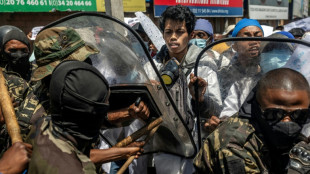 New prime minister inspires little hope in protest-hit Madagascar
New prime minister inspires little hope in protest-hit Madagascar
-
Is Trump planning something big against Venezuela's Maduro?

-
 EU wants to crack down on 'conversion therapy'
EU wants to crack down on 'conversion therapy'
-
French sex offender Pelicot says man who abused ex-wife knew she was asleep


End of nuclear in Taiwan fans energy security fears
Taiwan will turn off its last nuclear reactor on Saturday, fuelling concerns over the self-ruled island's reliance on imported energy and vulnerability to a Chinese blockade.
The island, which targets net-zero emissions by 2050, depends almost entirely on imported fossil fuel to power its homes, factories and critical semiconductor chip industry.
President Lai Ching-te's Democratic Progressive Party has long vowed to phase out nuclear power, while the main opposition Kuomintang (KMT) party says continued supply is needed for energy security.
Ma'anshan Nuclear Power Plant in southern Pingtung county is being closed as China intensifies military activity around Taiwan, which Beijing claims as part of its territory and has vowed to bring under its control one day.
During large-scale military drills around Taiwan in April, China simulated strikes on key ports and energy sites as well as blockading the island.
Ma'anshan has operated for 40 years in a region popular with tourists and which is now dotted with wind turbines and solar panels.
More renewable energy is planned at the site, where state-owned Taipower plans to build a solar power station capable of supplying an estimated 15,000 households annually.
But while nuclear only accounted for 4.2 percent of Taiwan's power supply last year, some fear Ma'anshan's closure risks an energy crunch.
"Taiwan is such a small place and currently there's no other better and more efficient natural energy source that can replace nuclear power," said Ricky Hsiao, 41, who runs a nearby guesthouse.
"The reality is that TSMC and other big companies need a lot of electricity. They would leave Taiwan if it's not stable," he told AFP, referring to chipmaking giant Taiwan Semiconductor Manufacturing Company.
But mother-of-two Carey Chen fears an accident like the 2011 Fukushima nuclear meltdown in Japan, which like Taiwan is prone to earthquakes.
"If we can find other stable power sources, I support a nuclear-free homeland for everyone's safety," Chen, 40, told AFP.
- Stable supply -
At its peak in the 1980s, nuclear power made up more than 50 percent of Taiwan's energy generation, with three plants operating six reactors across the island.
Concerns after the Fukushima disaster sawa new plant mothballed in 2014 before it was even finished.
And two plants stopped operating between 2018 and 2023 after their operating permits expired.
Most of Taiwan's power is fossil fuel-based, with liquefied natural gas (LNG) accounting for 42.4 percent and coal 39.3 percent last year.
Renewable energy made up 11.6 percent, well short of the government's target of 20 percent by 2025.
Solar has faced opposition from communities worried about panels occupying valuable land, while rules requiring locally made parts in wind turbines have slowed their deployment.
Lai insists Taiwan's energy supply will be stable even as AI technology boosts demand, with new units in existing LNG and coal-fired plants replacing Ma'anshan's output.
The KMT and Taiwan People's Party, which control the parliament, amended a law on Tuesday enabling nuclear plants to extend their operating life by up to 20 years.
"Nuclear power is not the most perfect way to generate electricity," KMT lawmaker Ko Ju-chun told AFP.
"But it is an option that should not be eliminated when we are developing technology, defence, and strengthening national security."
- Chinese threat -
Taiwan's reliance on imported fossil fuels is of particular concern given the risk of a Chinese blockade.
The island has enough LNG and coal reserves to last just 11 and 30 days, respectively, government data show.
Taiwan's centralised electricity grid also leaves swaths of the island at risk of major power outages in case of a single fault.
Without nuclear, "our energy security cannot be guaranteed, and national security will be affected", said Yeh Tsung-kuang, an energy expert at Taiwan's National Tsing Hua University.
Environmental activists argue renewables are the best way to bolster Taiwan's energy resilience.
"If every community has solar panels on its roofs, the community can be (more) self-sufficient", said Tsui Shu-hsin, secretary-general of Green Citizens' Action Alliance.
But others note Taiwan's break-up with nuclear is at odds with global and regional trends.
Even Japan aims for nuclear to account for 20-22 percent of its electricity by 2030, up from well under 10 percent now.
And nuclear power became South Korea's largest source of electricity in 2024, accounting for 31.7 percent of the country's total power generation, and reaching its highest level in 18 years, according to government data.
Yu Shih-ching, chief of Hengchun town where Ma'anshan is located, said the plant had brought jobs and boosted the local economy.
"Our view is that nuclear power is necessary," he told AFP, calling it "an important driving force for the national economy" and a "great help to local areas".
And Lai acknowledged recently he would not rule out a return to nuclear one day.
"Whether or not we will use nuclear power in the future depends on three foundations which include nuclear safety, a solution to nuclear waste, and successful social dialogue," he said.
U.Maertens--VB
